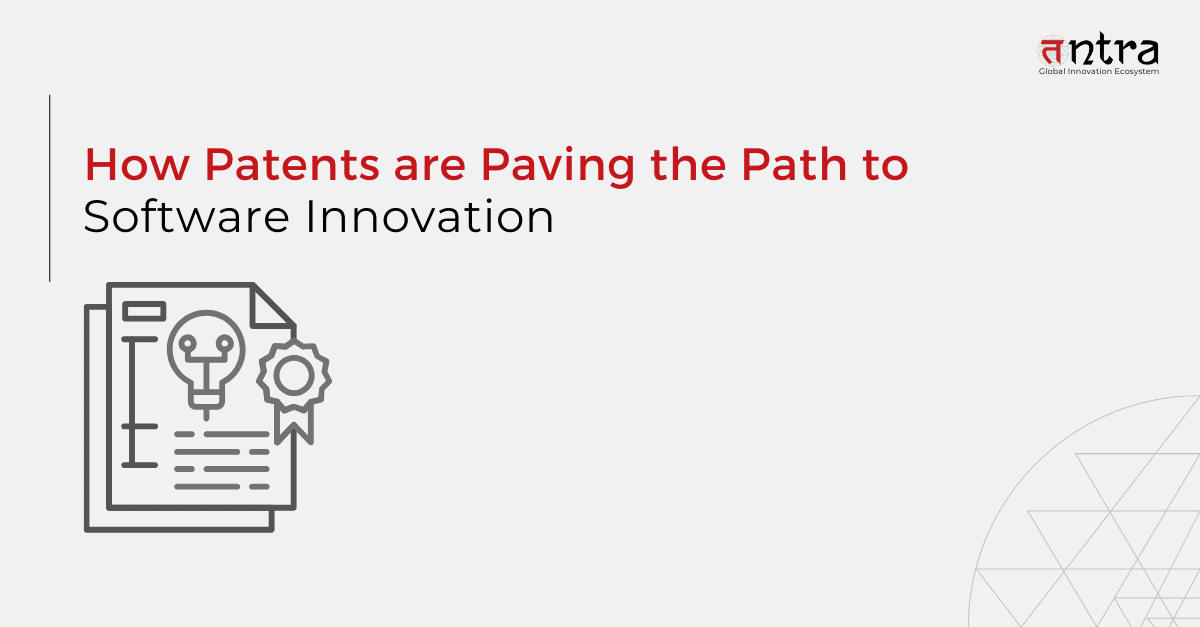
How Patents are Paving the Path to Software Innovation
Table of Contents
TogglePatents are like a legal fortress, protecting your invention from copycats. This security gives you the confidence to invest in your idea, knowing it won’t be stolen. Patents aren’t just about competition – they’re about building a legacy. They showcase your brand’s commitment to cutting-edge solutions, boosting your reputation globally. Plus, patents pave the way for international business by establishing legal ground rules worldwide. This blog highlights how patents can ensure innovation takes center stage and build a competitive advantage for your business.
Three Stanford University students—Bobby Murphy, Evan Spiegel, and Reggie Brown—created Snapchat. With the feature of self-deleting images and videos, the three developed a social networking software that supported user privacy.
Then, in order to improve automation, personalization, user privacy, and account security, the creators patented a number of app technologies and features. For instance, they received patents for machine-powered content curation (the technology underlying the app’s “Live Stories” feature) and an IP-based intrusion detection method.
But, the software didn’t catch on immediately; a few months after its release, there were just 100 users. Teenagers everywhere began to take notice of it after one of the co-founders shared it with classmates. The younger users adored how some of the “goofy” pictures they shared on Snapchat vanished forever as soon as the receiver saw them.
The creators of Snapchat continued to develop the app and work on new patents for invention, including those related to emotion recognition and augmented reality, which companies might utilize to improve user experience and customer service. They allowed businesses to market their goods to younger consumers while generating revenue from the sale of advertisements on the site. Currently, the app is a multimillion-dollar business.
(Source: The Patent Professor)
Technology and Software Patents: A Global Lookout
The top 10 most innovative companies in the United States in 2019 are dominated by IT. According to EconSight’s analysis, the companies that are producing the most distinctive, differentiating, and value-adding patents are Alphabet, Qualcomm, Intel, Microsoft, Honeywell, Apple, and GE.
The world boasts of 38 innovative enterprises in the United States, 21 in China, and 15 in Europe. Companies with headquarters in China and Japan are at the forefront of electronics innovation globally, as seen by the diversity of patents filed. In terms of patent innovation for medical technology, US businesses are global leaders.
Many people ask how patents have led to medical breakthroughs. Focusing on biosensors, surgical robotics, accelerating the time-to-market for pharmaceuticals, and supporting startup incubators that produce new patents are among the most innovative medical technology businesses in the world.
Patents and Their Role in Driving Innovation
Embracing patents and Intellectual Property (IP) can actually inspire teams to innovate for a number of reasons. The patent application process compels businesses to express their ideas succinctly and clearly. This may encourage fresh perspectives and suggestions on the current issue.
A patent is a strong legal defense that has been painstakingly constructed via the skill of patent drafting; it is more than just a certificate. This procedure entails turning vague ideas into a comprehensive, legally binding document by an intellectual property specialist. Patent drafting acts as a strong barrier, preventing any infringements and unauthorized usage by clearly defining the technical details of an invention as well as the limits of its protection.
Here are a few ways in which patents encourage innovation –
- Incentives for Innovation
Modern patent regimes encourage inventors to make expensive investments of time, money, and effort to create innovations with the goal of making prospective profits from them by temporarily providing inventors exclusive rights to new knowledge and discoveries. In many cases, patents are a good deal for society because they allow for the temporary monopoly earnings of the creator in exchange for facilitating the development and diffusion of information. These incentives for innovation drive every intellectual property business to ensure that patents go into the right hands. - Increase in ROI
Every new idea will be closely examined by companies across all industries to determine whether it can improve their bottom line. According to research, a technology’s financial returns can rise by as much as 50% when it has a patent. Here, the impact of patents on specific industries is visible. In the meanwhile, if a technology’s patent application is denied, it is less likely to ever reach the market. Due to its statistically superior position, a corporation with a patent can gain quick confidence when navigating the market. - Encourage Internal Competition
The company’s most valuable resource is its workforce, and a team can be greatly inspired by the prospect of obtaining a patent when they are actively involved in their job. When striving for a patent application, an appropriate invention approach can be selected while utilizing tools that facilitate collaboration and allow for the recording of important advances. This promotes healthy competition and intrapreneurship. Employees will adopt a mindset that encourages innovation, in part because they desire to impress supervisors and other employees. This is also one of the biggest benefits of patents for small businesses that can help them grow. - Build a Culture of Excellence
Patents show a brand’s commitment to developing novel products and technological advancements. This demonstrates their inventiveness, which in turn helps to enhance the brand’s reputation both locally and internationally. Patents make it easier for brands to conduct business internationally by establishing a legal framework. It also guarantees that the brand’s intellectual property is respected internationally, which aids in the brand’s global expansion. - Embrace Growth and Betterment
In a way, patents reassure investors and encourage their investment in creative enterprises. Similarly, these kinds of investments would foster a flexible economic climate and encourage new ventures throughout the segmented generation of more prospects for R&D activities. A strong patent system pushes innovators to surpass rivals. The rivalry sustains fresh or improved concepts that connect the ongoing technological development process, hence promoting growth.
Check out the Whitepaper based on the conversation between Mehul Desai and Charles Cella. The Whitepaper draws insights on patents and IP practices in the software world.
Patents Give You a Global Industry Edge
The revolutionary tool that converts abstract concepts into concrete assets with economic and legal worth is the software patent. It gives creators the confidence to confidently traverse the complex world of intellectual property as well as secure their creations. With the rapid evolution of technology, patents continue to play an essential role as a catalyst for innovation, safeguarding creative expression, and opening doors to a world of inventive inventions. An IP consultant can help build a portfolio of patents to ensure you get a competitive advantage. An open innovation system can help to embrace patents in a smooth manner.
If you are looking for a software product engineering consulting partner that can help you build patentable technologies, look no further than Tntra. With our 100+ domain experts and engineers, acquire your software patent and achieve an industry edge with ease.
BOOK YOUR FREE CONSULTATION CALL TODAY!
Listen to our podcast episodes on Intellectual Property!





